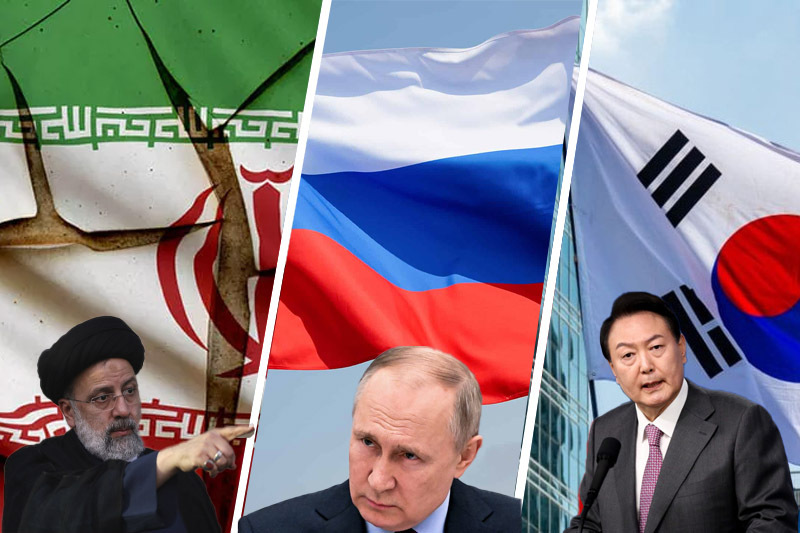
top 24 most racist countries 2023
Last updated on January 24th, 2024 at 07:12 am
It’s incredible that some nations still have problems with this basic problem in today’s society, where diversity and inclusivity are celebrated and racism is universally decried. Racism, unfortunately, still exists in various forms throughout the world. Therefore, based on current trends and events, we have compiled a list of the top 24 most racist nations for 2024. Prepare yourself as we take a closer look at these countries that are battling bigotry and intolerance.
Racism is a persistent issue that affects the entire world. Racism persists despite efforts to eradicate it in numerous nations around the world. This article will examine the top 24 most racist nations in the world. Some nations are more racist than others.
Racism comes in a wide variety of forms and takes many different forms. Based on skin colour, racism is one of the most prevalent types of prejudice. Darker skinned people frequently experience prejudice and discrimination, and this is particularly true in nations with sizable populations of racial or ethnic minorities.
Racism based on nationality or ethnicity is another type of racism. Countries with a history of conflict or colonisation by another nation may exhibit this type of racism. For instance, discrimination against Native Americans has long existed in the United States, and discrimination against Roma people has existed for centuries in Europe.
Racism may also be influenced by religion. People of a particular religion may be persecuted because of their beliefs in some countries. Millions of Jews were killed during the Holocaust solely for being Jewish, as was evident.
Racism can also take place based on a person’s language or culture. This is frequently observed in immigrants who move to a new country and experience prejudice because they don’t share the same language or cultural traditions as the locals.
Racism, in any form, is an unacceptable form of bigotry that must be eradicated.
Table of Contents
What is racism?
Racism is the process by which systems and policies, as well as actions and attitudes, create unequal opportunities and outcomes for people based on their race. Racism is more than just prejudice expressed through thought or action. It occurs when prejudice, whether individual or institutional, is combined with the ability to discriminate against, oppress, or limit the rights of others.
Since European colonisation began in 1788, race and racism have been central to the organisation of Australian society.
Racism can also be expressed through hate speech and hate crimes that target individuals or groups based on their ethnicity. Racism’s most extreme manifestation, the Nazi extermination of European Jews during WWII, exemplifies how it can lead to genocide.
Racism evolves and changes over time, having different effects on various communities and intensifying towards various groups at various points in history. The rise in racism against Asian and Asian-Australian people during the COVID-19 pandemic serves as an illustration of this.
Racism encompasses all laws, policies, ideologies, and other restrictions that impede people from enjoying justice, dignity, and equity as a result of their race. It may manifest as intimidation, violence, verbal or physical abuse, or harassment. However, racism also exists in institutions and systems that function unfairly and unequally.
Unfortunately, racism persists in many parts of the world today. While some countries have made progress in addressing this issue, others continue to face significant prejudice and discrimination.
The list below highlights some of the world’s most racist countries:
Top 24 Most Racist Countries Ranked
The UK was found to be among the least racist nations overall in a recent study on racism conducted by the Policy Institute of King’s College London. However, we used the data from this survey but this survey does not meet with the list presented by the other’s survey this year.
People from the 24 countries under investigation were asked which neighbors they would not want to live next to. Iran topped the list with 42% of respondents who said they would not want to live next door to immigrants or foreign workers, and these respondents were then ranked.
Below is a ranking of the nations that exhibit prejudice towards immigrants and foreign workers.
| Iran | 42 % |
| Russia | 32 % |
| Japan | 30 % |
| China | 26% |
| Greece | 26% |
| Morocco | 23 % |
| South Korea | 22 % |
| Egypt | 20% |
| Poland | 19 % |
| Italy | 18% |
| Philippines | 17 % |
| Indonesia | 17 % |
| Mexico | 14% |
| Spain | 13 % |
| Nigeria | 13 % |
| France | 10% |
| Australia | 9% |
| Canada | 9 % |
| United States | 8 % |
| Norway | 5 % |
| United Kingdom | 5 % |
| Germany | 4% |
| Brazil | 3 % |
| Sweden | 3 % |
The rankings of the nations also took into account the proportion of citizens who said they would not want to live next door to someone of a different race. Once again, Iran was at the top.
| Iran | 28 % |
| Greece | 24 % |
| Philippines | 21 % |
| China | 18 % |
| Egypt | 17 % |
| Nigeria | 16 % |
| Russia | 16 % |
| South Korea | 15 % |
| Japan | 15 % |
| Morocco | 14 % |
| Spain | 13 % |
| Italy | 12 % |
| Mexico | 11 % |
| Indonesia | 9 % |
| Poland | 7 % |
| Canada | 4 % |
| Australia | 4 % |
| France | 4 % |
| United States | 3 % |
| Germany | 3 % |
| Norway | 3 % |
| United Kingdom | 2 % |
| Brazil | 1 % |
| Sweden | 1 % |
The survey’s findings are at odds with those of recent research from St Andrews, Manchester, and King’s College London universities, which found that one in three UK residents of minority backgrounds have experienced racial-motivated physical or verbal abuse.
Keep Reading
The two-year study revealed the pervasive inequality and racial discrimination people in Britain experience at work, in schools, and elsewhere. It was published in a book titled Racism and Ethnic Inequality in a Time of Crisis.
Nissa Finney, the study’s lead author and a professor of human geography at St. Andrew’s, said in a statement to The Guardian that “the UK is immeasurably far from being a racially just society.” The types of inequality that our study reveals would not be
Causes of Racism in These Countries
The high rates of racism in these nations are a result of a variety of factors. Racism is largely fueled by a history of colonialism, discrimination, poverty, and economic inequality. Prejudice and bigotry can also result from a lack of education and understanding of other cultures.
Government rhetoric or policies can sometimes support racist attitudes. For instance, the government in Hungary has been charged with encouraging anti-Roma sentiment through its policies and public pronouncements. And Golden Dawn, a neo-Nazi party, has grown in support in Greece in recent years by capitalising on xenophobia and economic insecurity.
Racism is a complicated problem with numerous underlying causes. However, its root is ultimately rooted in our mistrust or fear of those who are different from us. Understanding racism’s root causes will help us change the systems and structures that support it.
Implications of Racism on Economy and Politics
Racial discrimination has a number of effects on a nation’s economy and politics. The effect on economic growth is one of the most notable implications. According to studies, nations with high rates of racial discrimination frequently experience slower rates of economic expansion. This is due to the fact that racist policies and attitudes can deter business ventures and investment, as well as cause a brain drain and send skilled workers abroad.
The political stability of a nation can also be impacted by racism. Civil unrest and violent crime are more likely to occur in nations with high levels of racial tension. Instability and even regime changes may result from this. Additionally, racism can make it challenging for nations to establish successful alliances and trade partnerships.
Short-term Solutions for Racial Discrimination
There are numerous short-term solutions to racial discrimination. One is by increasing knowledge and awareness. This is possible in workplaces, educational institutions, and general society. Understanding the current state of racism as well as the histories and experiences of people of all racial groups are crucial. Positive attitudes and behaviours can be fought against with the aid of this knowledge.
Through new laws and policies, racial discrimination can also be combated. Organisations can create policies that support diversity and inclusion, and governments can pass laws and regulations that forbid discrimination. These adjustments may level the playing field for all parties.
Supporting racist victims and Stand Up To Racism is also crucial. This covers giving support in the form of money, advice, counsel, and other kinds of help. Solidarity with those who experience racism can encourage more widespread change.
Long-term Solutions for Racial Discrimination
There is no single answer to the issue of racial discrimination. Different countries have different approaches, and what works in one country might not work in another. However, some general principles can be applied to any country seeking to reduce or eliminate racial discrimination.
First, it is important to recognize that racism exists and that it is a problem. Too often, people deny that racism is a problem in their country, or they downplay its importance. This only serves to perpetuate the cycle of discrimination.
Second, action must be taken at all levels of society to address racism. Governments need to pass laws and policies that ensure equality for all citizens, regardless of race. Employers need to create workplaces that are welcoming and inclusive for everyone. And individuals need to challenge racist attitudes and behaviors whenever they encounter them.
Third, education is critical in the fight against racism. People need to be educated about the history of racism and its impact on society today. They also need to learn about the experiences of people from different racial groups so that they can understand and appreciate diversity.
Fourth, it is important to promote dialogue and understanding between people of different racial backgrounds. This can help break down barriers and foster respect and cooperation.
Any solution to the racial discrimination problem must be long-term and sustainable. That means it cannot be a quick fix or a band-aid solution; it must be woven into the fabric of society.
Impact of Social Media on Racism
In recent years, social media has become increasingly important in promoting and amplifying racist attitudes and actions.
According to a 2017 study, one in every five Australians admitted to sharing racist content online, indicating that social media is a major contributor to racism in Australia.
Many survey discovered that social media sites like Facebook and Twitter give people a forum to express their prejudices without repercussion, which helps to normalise racism. The study also discovered that people or groups can be targeted and harassed on social media based on their race or ethnicity.
Social media’s effect on racism is not unique to Australia. According to a 2015 study conducted in the US, almost half of young adults who use social media have experienced online racism. The study also discovered that people of colour, particularly African Americans and Latinos, are much more likely than white people to encounter online harassment because of their race or ethnicity.
These studies show that social media platforms must take additional steps to combat racism on their networks. We must all take action to combat racism because it is still a problem both offline and online.
Understanding Diversity
There is no one solution that addresses racism in all cases. No one nation can be said to be the “most racist” in the entire world. Each country’s distinct demographics, history, and culture influence how much racism exists there.
Nevertheless, some nations are generally more tolerant of racial diversity than others. In general, these countries have had more success addressing historical discrimination and fostering social inclusion. Additionally, they frequently have sizable immigrant populations and value multiculturalism.
Iran ,Greece, Philippines , US , African regions are a few of the nations with the highest levels of racial tolerance on the planet. In recent years, these countries have made significant progress towards building inclusive societies for all of their citizens.
Conclusion
Every nation deals with racism to some extent. However, there are some nations where racism is institutionalised and more pervasive. Three of the most racist nations in the world are Iran , Greece and Phillipines. The current situation is a result of historical racial discrimination and slavery in each of these nations. Black people are imprisoned in America six times more frequently than white people. In Brazil, more than 50% of people think black people are less than white people. Despite making up only 9% of the population, white people still control the majority of the wealth and power in South Africa. Although racism is a problem everywhere, its worst effects are most evident in these three nations.









